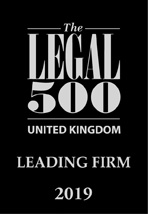An investigation carried out by the BBC has revealed failures in the diagnosis of medical issues during ultrasound scans at private clinics.
More than 200 studios in England offer private ultrasound scans, with hundreds of thousands being carried out annually. Whilst some clinics diagnose medical conditions, others market themselves as providers of souvenir images or videos of the ultrasound.
The profession of those scanning pregnant women, sonography, is not regulated like radiography, which leads some to question the quality and interpretation of private ultrasound scans. Dr Jeanette Dickson, President of the Royal College of Radiologists considers that regulation of sonographers is necessary because of the continuing growth in the baby scanning industry. Dr Dickson commented, "You're doing the most difficult scans at the trickiest time for the most anxious group of people with a workforce that you don't necessarily know their level of skills, expertise and what training they've actually had."
These private clinics are monitored by the Care Quality Commission (CQC), but it does not consider scans as part of its inspections. The CQC inspect clinics according to risk or upon receiving "information of concern". The CQC commented that there is some quality care in the industry, but agreed that there is a growing concern after BBC News discovered a clinic that had not been inspected since opening four years ago.
The BBC News found that an expecting mum from Manchester, attended Window To The Womb for a private ultrasound scan to ascertain her baby's sex and check its wellbeing.
The sonographer identified a serious abnormality where part of the baby’s head was missing. This is a condition called anencephaly which in most cases results in the baby being unlikely to survive. However, she was not referred to hospital, instead she was advised to book an anomaly scan under the NHS.
Window To The Womb said that all its staff are registered with the Health and Care Professions Council, however BBC News discovered that the sonographer who carried out the scan was not. A representative of Window To The Womb said "An anomaly was identified however the communication from the sonographer was not to the standard that we expect."
As part of the investigation, BBC News looked into the practices of many private clinics and uncovered concerns about how the industry operates more widely including:
- Failure to diagnose an ectopic pregnancy and multiple spina bifida cases
- Women undergoing private ultrasound scans more than a dozen times during pregnancies not regarded as high risk. The NHS provides two scans unless there is a clinical need for more
- A studio which had not been inspected by the CQC in England four years after opening
- Companies offering non-essential '4D' scans during lockdown which visualise the foetus but have no medical benefit to women
- Use of Doppler function to listen to heartbeats of foetuses under 12 weeks despite NICE guidance recommending against routine use in low-risk pregnancies
The findings reveal a "catalogue of incredibly poor practice", according to Jacqueline Torrington, a lecturer in medical ultrasound at City University London. She stated "There is an entire range of harms here, which are completely unnecessary… It ranges from incredibly dangerous to anxiety inducing to false reassurance."
Ultrasound scans play a pivotal role in ascertaining the wellbeing of a foetus. It is disconcerting to hear of the lack of regulation of sonographers, particularly in the private industry and expecting mums not being advised of issues identified in scans. There are also fears that many women may be falsely reassured.
If you, or a loved one are concerned about the treatment you have received during an ultrasound (private or under the NHS) please contact us and speak to one our friendly medical negligence solicitors for a free no obligation discussion on 0121 355 0011.









Comments